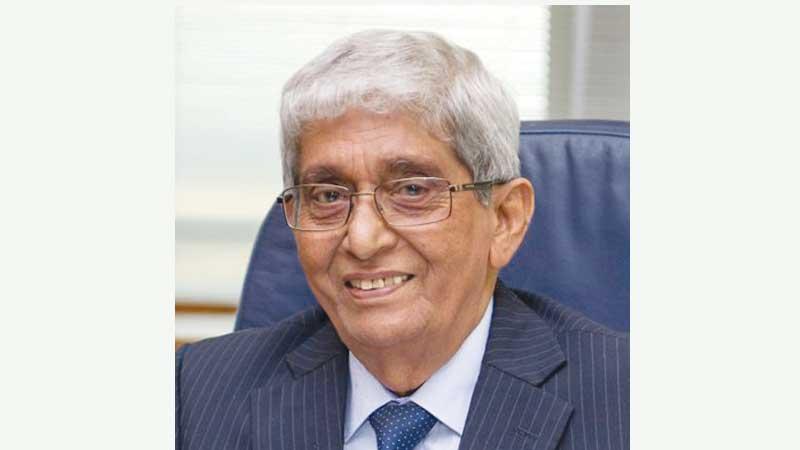
The 2021 Budget promotes economic growth while focusing on social security, poverty alleviation, environment and social justice through fair distribution of resources among regions, said Central Bank Governor Prof. W. D. Lakshman elaborating on the Monetary Policy stance of the bank on Thursday.
He said the government has allocated a vast amount of resources to achieve these goals through the 2021 Budget and added that enhancing public investments and promoting domestic and foreign investments are key to build a strong domestic economy. However, he noted that a collaborative effort by the public and private sector is crucial to achieve the envisaged goals during the current tough times.
“The Government and the Central Bank have been working hand-in-hand since the outbreak of the health crisis and have helped keep the economy going despite the limitations. We have helped to increase merchandise exports and enhance domestic and foreign borrowings through policy measures,” the Governor said. The Central Bank is confident the economy will rebound strongly in 2021 and sustain its growth momentum over the medium term despite disturbance to the near term growth prospects, the Central Bank stated in its release of the Monetary Policy stance on Thursday.
The Bank expects a re-bounce of the economy next year due to the stimulus measures already in place and the effective implementation of the pro-growth policy proposals announced in the Government Budget 2021. However, the persisting challenge for the country in the years ahead is the settlement of external debt running into over USD four billion a year from 2021.
The current gross official reserves were estimated at US dollars 5.9 billion at end October 2020, with an import cover of 4.2 months.
Economists and financial analysts said unless the country has a strong strategy to boost revenue the country could get into a severe debt crisis needing a bail out as Argentina and Greece. “Revenue generating sources such as supporting foreign direct investments, increasing export competitiveness and revival of tourism would be key to address major macroeconomic issues, an economist said, adding that taxes should be levied from those who could afford and from sectors that are doing well instead of burdening the poorer segment of society who are already burdened with the current crisis.
The economy contracted sharply by 1.6 percent in the first quarter this year with the service sector recording 3.1 percent being the only exception.
The second quarter results which are pending are expected to record a minus growth due to the impact of the global pandemic taking effect on economic activities.However, the country has set an ambitious target of notching five percent growth in 2021 and beyond that in the ensuing years sound macro fundamentals and a forward looking policy framework proposed in the budget.
The Central Bank notes that the economy had recovered strongly during the third quarter this year and is optimistic of a faster re-bounce in 2021.
A resilient external sector has been the silver lining for the economy. The deficit in the trade account continued to narrow significantly, on a year-on-year basis, for the sixth consecutive month in October 2020.
Workers’ remittances increased for five consecutive months. These developments have largely cushioned the balance of payments effects of the pandemic arising from tourism sector.
The Monetary Board of the Central Bank at its meeting held late this month decided to maintain the Standing Deposit Facility Rate and the Standing Lending Facility Rate at their current levels of 4.50 per cent and 5.50 per cent.
To support the economic revival, the Board decided to introduce maximum interest rates on mortgage backed housing loans for salaried workers, while lending targets for selected sectors of the economy will be introduced in the near future.
The rupee recorded a depreciation of 2.0 percent against the US dollar thus far this year.
Credit extended to the private sector increased for the third consecutive month in October 2020. The loan schemes at low interest rates proposed by the Government in the Budget 2021 are expected to reinforce the efforts to direct funds to needy sectors of the economy.
However, the momentum of credit disbursement to the private sector rests on the speed of containment of the second wave of Covid-19 and its impact on domestic economic activity.
Credit to the public sector from the banking system continued to expand. The resultant substantial increase in domestic credit caused acceleration in the growth of broad money (M2b) in October 2020. Inflation remains subdued in the near term, and any build-up of inflationary pressures over the medium term will be addressed proactively when required Inflation, as reflected by the movements in the national and urban price indices, eased in October 2020, with headline inflation remaining within the targeted range of 4-6 per cent and core inflation remaining low, reflecting subdued underlying demand pressures.
